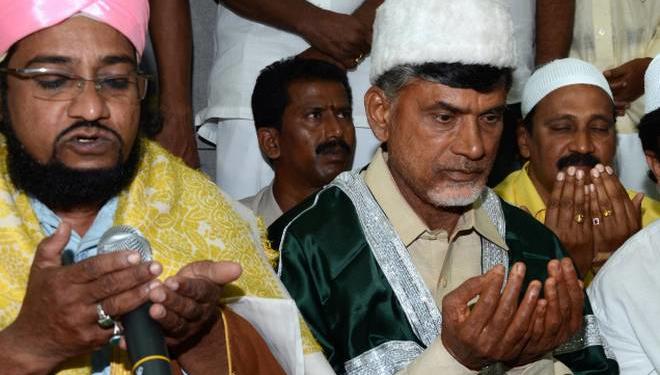N Chandrababu Naidu, the president of Telugu Desam Party has gone a step ahead of Rahul Gandhi in promising freebies to the people to win the election. In the manifesto for the 2019 general election, the party promised Rs 2 lakh to each family every year. The amount of money Naidu promised is almost three times to that promised by Congress president. “Nobody can match us in extending such largesse even in imagination,” said Naidu, the incumbent chief minister of Andhra Pradesh. The scheme of Naidu is universal in contrast with NYAY which will target only 20 percent of poor families.
The scheme would cost Rs 54 lakh crores which is almost 28 percent of country’s GDP. This amount is close to combined expenditure of central government and state governments which is around 60 lakh crore rupees. The parliamentary and assembly elections are being conducted simultaneously in Andhra Pradesh. The two major parties of the state- Naidu led TDP and Y S Jaganmohan Reddy led YSR Congress has promised freebies to electorates. The parties promised 30-45 lakh free houses and waiver of loans on existing houses. The scheme would cost around 40,000 crore rupees. There are many other schemes for farmers and poor people.
Both parties plan to increase the taxes on middle class and corporates to fund their freebie distribution schemes. However, even after a tax increase, the promises are irrational and impractical to implement. If the TDP government comes to power and implements the scheme, the space for expenditure on defense, infrastructure and domestic security would get squeezed to a minimum. The spending of other social and economic welfare schemes like subsidies, health, and education would also shrink in huge amounts. If parties like TDP, YSRC, or Congress come to power, the economy and national security of the country would be compromised.
Recently, Sam Pitroda, one of the most powerful people in the Congress party, admitted that the burden of the NYAY scheme will fall on the middle class. When asked whether taxes will not go up and whether the middle class will be affected by it, Pitroda said, “Taxes may go up but I do not think that’s a major issue”. Earlier, economist Abhijit Banerjee, the brain behind Congress’ NYAY scheme had admitted that the taxes on middle class would increase to fund the scheme. In an interview with Rahul Shivshankar of Times Now, he categorically said, “No NYAY without tax increase.” In another interview with Rajeev Dubey of Business Today he said that there is scope for direct as well as indirect tax increase. When Banerjee was asked what taxes should increase and what are the new taxes that can be imposed, he said, “Income taxes. In principle, there’s scope for wealth taxation and in some sense there’s scope for increasing GST.”
The burden to finance basic income schemes would fall on middle class. Thomas Piketty, the person behind income transfer scheme recommends a top income tax rate of 80% and a next-to-top income tax rate of 50 to 60% to increase the tax to GDP ratio. These schemes are regressive in nature and would be harmful for growth of the economy in this country. Currently, India is the fastest growing economy among major economies of the world but its productivity would fall significantly if any such scheme is implemented.




















